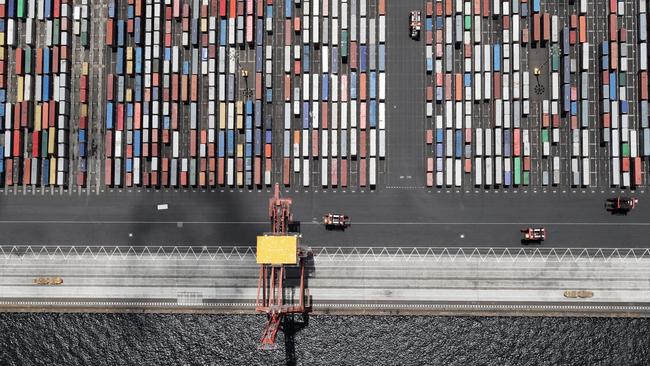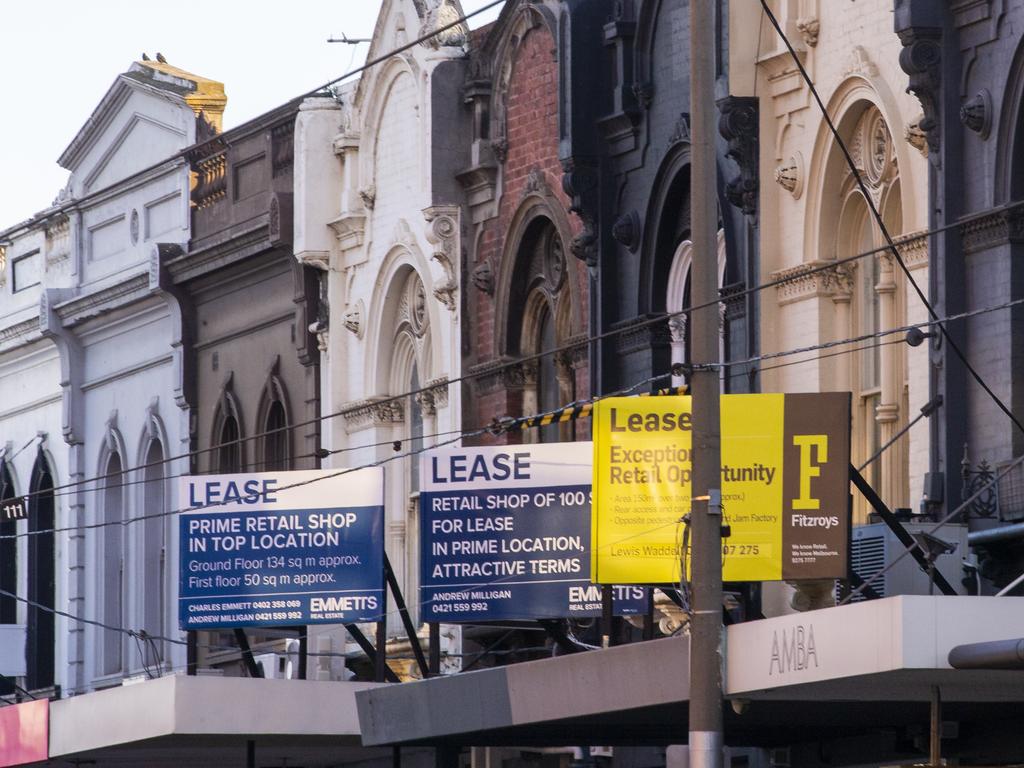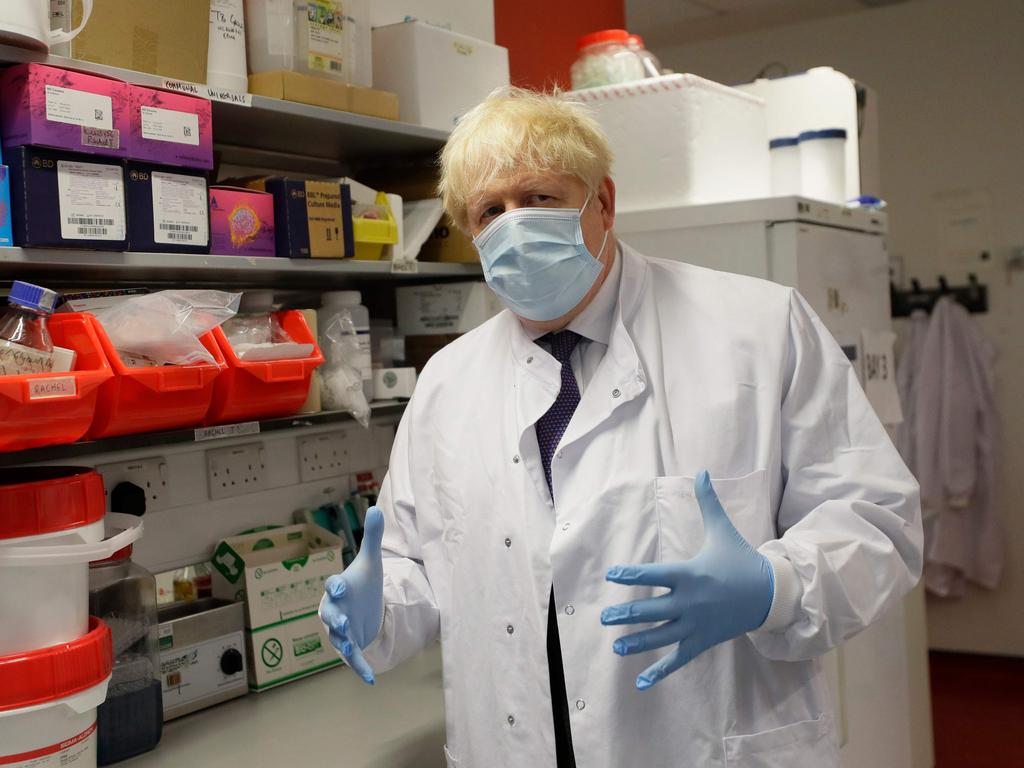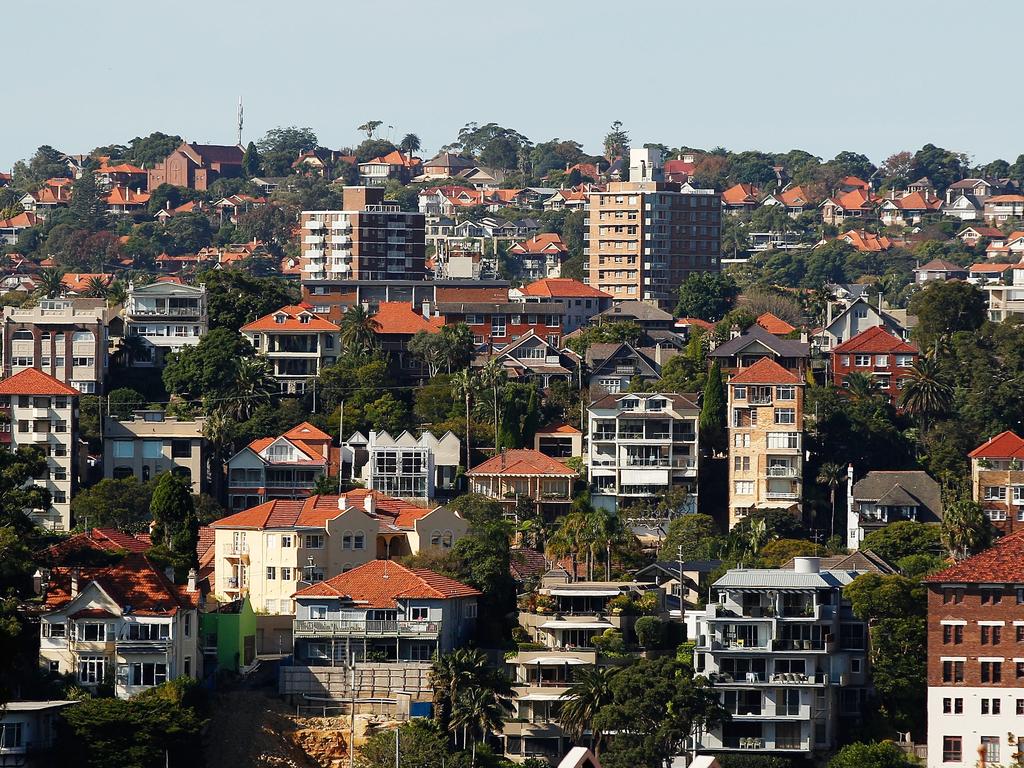Shortages could ruin Christmas, Toll Holdings warns
The nation’s largest transport and logistics company has issued dire warnings of a looming Christmas crunch for Australia’s retail sector.

The nation’s largest transport and logistics company Toll Holdings has issued dire warnings of a looming trainwreck for Australia’s $320bn retail sector in the pre-Christmas rush, with the supply chain already at breaking point with containers abandoned at wharves and a risk of shortages in the shops.
In a letter sent by Toll Global Logistics president Peter Stokes to Victorian Premier Daniel Andrews, and obtained by The Australian, the transport chief lays out the nightmarish scenario now facing the state and the country unless there is an acceleration out of stage 4 regulations around workforce levels at warehouses and distribution centres.
It could ruin Christmas for the retail and consumer good sectors, which rely heavily on the holiday season for the bulk of their profits, as goods sit on the wharf or pile up in a corner of a warehouse and then hit the stores too late in the season.
Toll operates 51 logistics sites for the retail sector across Australia, with 14 of those in Victoria. The state represents a hub for the entire nation’s supply chain of retail goods.
The warnings from Toll match similar statements from supermarkets that have advised the Victorian government in sometimes heated closed-door meetings that the constricted supply chain runs the risk of food shortages for Christmas.
The supermarkets and Toll claim they are not being listened to by the government and that promised consultation sessions with industry have been one-sided.
Toll was not consulted before Mr Andrews released his pathway out of stage 4 and was as surprised as the retailers when it was released earlier this month.
Toll has now made a direct plea to Mr Andrews, detailing the blockages emerging in the nation’s supply chain that delivers everything from clothing, consumer electronics and housewares for the retail sector but will not be able to cope with the ramp-up in demand between now and Christmas. Tough restrictions on the numbers of workers allowed on site are strangling the supply chain.
Mr Stokes warned the supply chain run by Australia’s biggest logistics operator was already struggling at current volumes and it would only get worse in the run up to Christmas.
“Melbourne is a national hub for trade across the county and is home to many warehouses and DCs (distribution centres) that service national supply chains,” Mr Stokes said in his letter.
“As volumes in these facilities increase heading into the pre-Christmas peak retail season, the workforce restriction requirement is a significant risk on the supply chain’s ability to meet consumer demand.”
Workforce numbers at warehouses could be lifted from 33 per cent reductions from late October if COVID-19 infection rates in the state are reached, but it will be too late to catch up on volumes and runs the risk of shortages at retailers.
Mr Stokes said Toll’s warehouses and distribution centres were already close to peak season volumes and were only able to carry out primary functions under the restrictions.
This has meant Toll has been forced to leave some containers at the wharf or lease facilities to house unopened containers, while returns from customers who bought products such as clothing online are not being processed.
He warned Mr Andrews that seasonal stock, especially in fashion, would be stuck at the wharf and once the supply chain catches up it would be too late and leave retailers carrying the cost of out-of-season stock.
“This reality cannot be sustained for much longer. As this supply chain bottleneck continues, ports and container storage will eventually congest to the point that unsold inventory will lose significant value to our customers. For example, 2020 winter clothes cannot be sold in the coming summer season.
“The roadmap does not enable general warehouses and DCs to reach the density quotient until the ‘Open with a COVID Safe Plan’ stage is triggered on 26 October. This time frame is simply unsustainable for our facilities, which risks immediate and worsening disruptions.”
Toll has also complained that its biggest competitor, Australia Post, will be allowed to increase its parcel warehouse and distribution workforce at the end of the month, with Toll not able to have more workers in a shift until late October.
Toll said the tight regulations around logistics infrastructure in Victoria could force companies to rethink their investment in the state, triggering an exodus from Victoria and with it many jobs.
“The ongoing imposition of restrictions on warehouses and DCs in metropolitan Melbourne risks the long-term viability of such facilities in Victoria. With the rapid growth in e-commerce, there is heightened risk that many companies will choose to shift their national DC facilities from Victoria to other locations such as western Sydney. This would be a significant blow to Victoria’s longtime pre-eminence in the national supply chain and see the loss of many vital blue collar jobs from the state.”
Earlier this month Wesfarmers CEO Rob Scott blasted the Andrews government for a lack of consultation around his plans to exit stage 4 restrictions.
“In Victoria, Wesfarmers businesses employ around 30,000 team members and we have not had any meaningful engagement with the government around retail operations and nor any feedback as to whether our retail network presents any risks to the community,” Mr Scott said.
Former Myer CEO Bernie Brookes also blasted the failure to consult by the Victorian government, calling it a “scorched earth approach.’’






